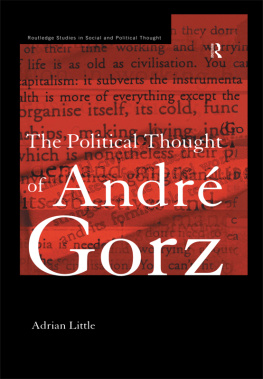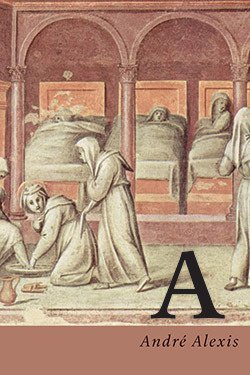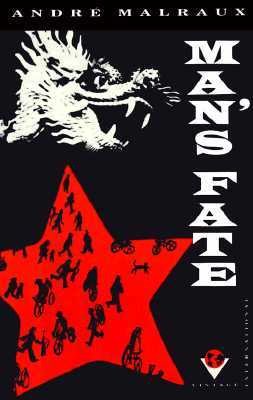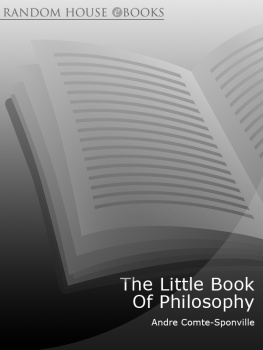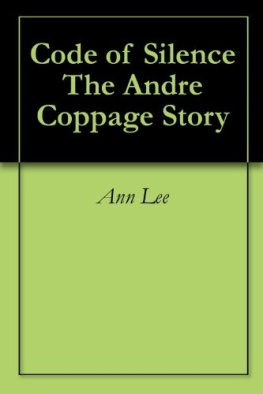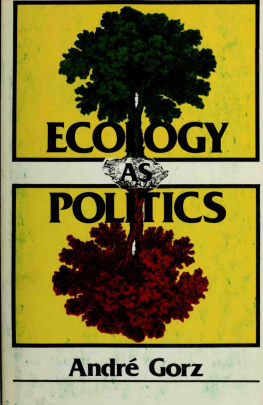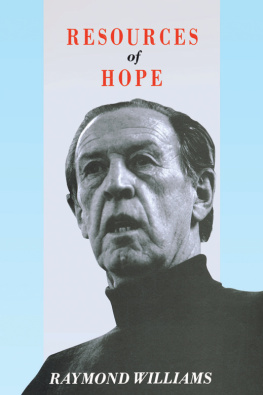THE POLITICAL THOUGHT OF
ANDRE GORZ
Since the late 1950s Andr Gorz has produced a unique and influential body of work, which has profound implications for politics, economics, sociology and social policy. This is the first book-length analysis of Gorz's thought and its enormous contemporary importance.
Gorz's intellectual foundation was the existential Marxism of postwar France, which he applied to his study of work and class in advanced capitalist societies. Adrian Little recognises the significance of his early writing, but argues that Gorz's seminal work was his Critique of Economic Reason which tied together the eclectic themes of his theory.
Adrian Little discusses all of these themes in detail in this book, but pays particular attention to Gorz's use of political ecology, his advocacy of Utopian politics and his proposals for a socialist alternative to the existing systems of work and welfare. Little concludes that Gorz's work supplies a coherent theory of socialist individualism that provides a new agenda for the Left in the approach to the twenty-first century.
Adrian Little is Senior Lecturer in Politics at Nene College, Northampton.
ROUTLEDGE STUDIES IN SOCIAL AND
POLITICAL THOUGHT
1 HAYEK AND AFTER
Hayekian Liberalism as a Research Programme
Jeremy Shearmur
2 CONFLICTS IN SOCIAL SCIENCE
Edited by Anton van Harskamp
3 THE POLITICAL THOUGHT OF ANDR GORZ
Adrian Little
THE POLITICAL
THOUGHT OF ANDRE
GORZ
Adrian Little

Londan and New York
First published 1996
by Routledge
2 Park Square, Milton Park, Abingdon, Oxon, OX14 4RN
Transferred to Digital Printing 2005
Simultaneously published in the USA and Canada
by Routledge
270 Madison Ave, New York NY 10016
Routledge is an International Thomson Publishing company
1996 Adrian Little
Typeset in Garamond by
Keystroke, Jacaranda Lodge, Wolverhampton
All rights reserved. No part of this book may be reprinted or
reproduced or utilised in any form or by any electronic,
mechanical, or other means, now known or hereafter invented,
including photocopying and recording, or in any information
storage or retrieval system, without permission in writing from
the publishers.
British Library Cataloguing in Publication Data
A catalogue record for this book is available from the British Library
Library of Congress Cataloguing in Publication Data
Little, Adrian, 1969-
The political thought of Andr Gorz / Adrian Little.
p. cm. (Routledge studies in social & political thought)
Includes bibliographical references and index.
1. Gorz, Andr Contributions in political science. I. Title.
II. Series.
JC261.G67L57 1996
320.5315092-dc20 96-7013
CIP
ISBN 0-415-13866-3
CONTENTS
To Sinead
ACKNOWLEDGEMENTS
Throughout the course of this project I have been lucky enough to receive abundant sympathetic criticism. I owe immense gratitude to Michael Kenny who spent a lot of time providing rigorous and illuminating analysis of early drafts. I have also benefited from the perceptive comments provided by Andrew Dobson. In my time at the Queen's University of Belfast I received welcome assistance from Vince Geoghegan and Bob Eccleshall. John Keane helped me to establish contact with Andr Gorz; Conrad Lodziak, who initially introduced me to Gorz's work, provided useful commentary on my early research.
I thank Caroline Wintersgill and James Whiting at Routledge for their assistance and the comments of two anonymous reviewers for Routledge provided much food for thought. The two reviews contrasted although both were supportive. The most interesting point of disagreement was my sympathetic attitude towards Gorz's work. One reviewer felt I was not critical enough of Gorz's theory, the other felt it was not suitable to criticise Gorz for the sake of being critical. I tend to concur with the latter perspective but I hope to show that one can be sympathetic towards one's subject and simultaneously make critical comments where they are thought to be necessary. In any case I value the effort of the reviewers and they raised several extremely relevant points. None of those acknowledged above can be held responsible for any errors that remain as the final product is of course my responsibility.
INTRODUCTION
This book is a critical evaluation of the thought of Andr Gorz which has been largely neglected in political theory in the UK. Most references to Gorz are based upon his most famous book, Farewell to the Working Class (1980), which has been open to misrepresentation from those who wish to classify Gorz as a theorist of work and class. It is important to redress the imbalance which has been created by the misinterpretation and categorisation of Gorz's theory by those who fail to understand the complex and original totality of his thought.
Gorz was born in Vienna in 1924, the son of a middle-aged Jewish businessman and a young Catholic typist. From his early years he remembers being the centre of his mother's attention. She attempted to imbue the young Gorz with the bourgeois values of financial success and Aryanism. Subsequently she changed the family name from Horst to Gorz to eliminate the identifying mark of Judaism, cajoled her husband into adopting Catholicism and named Gorz Andr after an actor. Gorz believes that pressure from his mother hindered him from forming a stable identity which manifested itself when, as a youth, he flirted with Nazism in an attempt to find a mode of social insertion or self-identity.
In his late teens, Gorz discovered political philosophy and became engrossed with Sartre, Hegel and Marx. He was particularly engrossed by Sartrean existentialism and came to value the radical political philosophy that was expressed by the existentialist theorists in France. When he met Sartre and De Beauvoir in Lausanne in 1946 at the age of 22, they were impressed by his thorough understanding of Sartre's work. Subsequently Gorz moved to Paris and became a journalist, working mainly on Les Temps Modernes and Le Nouvel Observateur. Slowly he became increasingly prominent in post-war French socialist debates in the late 1950s and early 1960s. Moreover he became a close personal friend of Sartre who wrote the preface to The Traitor, Gorz's semi-autobiography, published when he was only 34 (Sartre 1989; Marcus 1992).
From this brief biographical account, it is possible to identify the reasons why individual autonomy and self-determination have become the dominant factors in Gorz's political theory. Given his alienation as a child, it is also clear why the existentialist doctrine, with its concentration on individual liberation, was attractive to the young Gorz. From this background he went on to develop a highly original perspective which, although critical of the work of Marx, can be located within the Marxian tradition.
The conventional view of Gorz is primarily based upon his conception of work and class conflict. Commentators such as Meiksins Wood have presented Gorz's theory as anti-Marxist, arguing that Gorz wishes away the need for class conflict and seeks reform rather than revolution (Meiksins Wood 1986: 1518). Others, such as Hyman, contend that Gorz has supplanted the revolutionary proletariat with a new class, a new revolutionary subject the neo-proletariat (Hyman 1983). One of the most critical approaches to Gorz has been taken by Sayers who believes that Gorz misconceives human nature by denying the human need to work. Furthermore Sayers argues that Gorz pays lip-service to liberal individualism by creating an ascesis of domestic labour (Sayers 1988, 1991).

